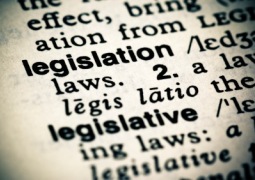
Parliament, Thursday, 11 April 2024 - The General Intelligence Laws Amendment Bill (GILAB), which is now before the Ad Hoc Committee on GILAB in the National Council of Provinces (NCOP), is a significant step towards reforming the intelligence services in South Africa. Its objective is to implement the recommendations of the High-Level Review Panel on the State Security Agency (SSA).
GILAB proposes to split the SSA into domestic and foreign intelligence services. This restructuring aims to improve the efficiency, specialisation and accountability of the intelligence services, while strengthening coordination and oversight.
During the National Assembly (NA) process, the Bill underwent thorough scrutiny in briefings, public hearings and stakeholder consultations. As a result, substantive changes were made to the initial Bill submitted to Parliament to address concerns raised during the public participation process. These included, tightening broad and ambiguous definitions, removing definitions that would enable the vetting of civic or faith-based organisations, removing provisions that would allow intelligence services to apprehend individuals, and addressing matters related to security vetting of institutions of national security interest to prevent potential abuse.
The contentious issue of bulk interception, as raised by the public, has also been resolved, with the legal provisions and accompanying safeguards outlined in the Constitutional Court judgment included in the new Bill. The Bill has introduced a robust two-step authorisation process for bulk interception, which requires authorisation within the intelligence service itself and an independent judicial review. This will ensure that interceptions are conducted within the boundaries of the law based on genuine security concerns. Moreover, crucial amendments have been made to ensure that both the Inspector-General of Intelligence (IGI) and the National Intelligence Coordinating Committee (NICOC) are autonomous and empowered to make administrative and functional decisions.
The committee in the NA sought permission for additional provisions that were not included in the Bill as introduced. These include the appointment of the Deputy Chairperson of the Joint Standing Committee on Intelligence (JSCI); biannual meetings between the JSCI and the President on intelligence-related matters; the alignment of the annual reporting of the JSCI with parliamentary reporting requirements; the appointment of the Deputy IGI; empowering the JSCI to designate the IGI to provide a specific oversight function; strengthening compliance by the executive with the recommendations of the IGI; and amending the Secret Services Act 56 of 1978 to provide for the establishment of the Evaluation Committee within 12 months after the Act is passed.
On 4 April 2024, the committee in the NCOP received a synopsis on the mentioned provisions, and further deliberations will be held on the proposed provisions. From Friday, 12 April 2024, the committee will commence with the public participation process on the Bill, starting with the publishing of an advertisement in all major national newspapers, inviting written submissions from interested parties.
On Saturday, 13 April 2024, the committee will conduct its first provincial public hearing at Holy Family Combined School in Mogwase Local Municipality, North West at 10:00 am. Other public hearings will be held in Northern Cape, Free State, and Eastern Cape in April. This will provide an opportunity for stakeholders to directly address the committee on their views. Parliament’s public education unit will be in the provinces to ensure that stakeholders are familiar with the contents of the Bill and are supported in making submissions during the public hearings.
ISSUED BY THE PARLIAMENTARY COMMUNICATION SERVICES ON BEHALF OF THE CHAIRPERSON OF THE AD HOC COMMITTEE ON THE GENERAL INTELLIGENCE LAWS AMENDMENT BILL, MR KENNETH MMOIEMANG.
For media enquiries, please contact the committee’s Media Officer:
Name: Ms Faith Ndenze
Parliamentary Communication Services
Cell: 081 377 0686
Email: fndenze@parliament.gov.za

